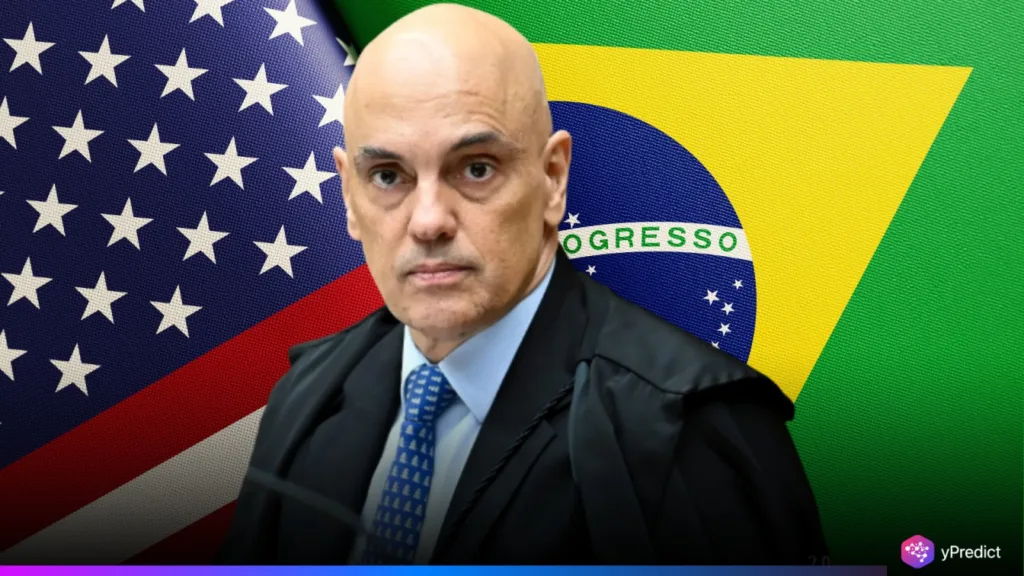
In a step that has sent diplomatic and financial shockwaves, the United States issued judicial sanctions against Brazilian Supreme Court Justice Alexandre de Moraes on July 30, 2025. The action is taken under the Global Magnitsky Act, an American legal mechanism that sanctions individuals responsible for serious human rights abuses. Moraes, who made headlines after prosecuting former President Jair Bolsonaro, is now subject to restrictions for supposedly stifling free speech and arbitrary detentions. This rare act of targeting a sitting justice underscores Washington’s expanding use of U.S. sanctions as a tool for global influence. The action not only raises concerns over sovereignty but also triggers a fresh wave of uncertainty in Brazil’s financial system.
Brazilian Banks Scramble for Clarity
Brazil’s top financial institutions are rushing to evaluate the potential fallout. Legal teams across major Brazilian banks are actively reviewing the implications, especially concerning international transactions. A senior executive from Bradesco, one of Brazil’s largest banks, confirmed that compliance teams are working overtime to interpret the full scope of the sanctions.
This mimics previous U.S. actions, e.g., the 2019 Venezuelan official sanctions that led to a 15% fall in foreign transactions, as the 2021 IMF report pointed out. The anxiety is evident. Analysts suggest that any delay in understanding the restrictions could expose financial institutions to secondary penalties. As such, banks are prioritizing quick internal audits and policy alignment with international partners.
Symbolism and Global Repercussions
A photo going around with the news—a bald eagle attacking a judge—has provided a visual component to the controversy. The critics say that the U.S. is once again taking on the role of global enforcer, this time targeting judicial independence in other countries. Legal analysts suggest this intervention can create a precedent for other countries to handle potential similar offenses. However, the controversy in Brazil is around where justice ends and political revenge begins, especially because Moraes has been so outspoken against anything related to Bolsonaro. People across the globe will be watching closely to see if other nations will follow Washington’s lead or resist what some consider an inappropriate or overreach of U.S. sanctions authority.
Legal Tensions Spill Over Borders
Brazil’s diplomatic service sent a formal request for clarification to the U.S. State Department, raising matters of transparency and procedural fairness. In the interim, the short-term effects are being felt in the finance boardrooms, where Brazilian banks are keeping a close eye on developments. In this fog of uncertainty, the case itself demonstrates a wider practice: the increasingly close entanglement of legal, political, and financial architectures stockpiled under the human rights umbrella. Judicial sanctions, which were once anathema, are becoming serious tools of international diplomacy.
U.S. Strategy and Brazil’s Institutional Stability
The Biden administration has justified the step as being part of a larger effort to defend democratic principles. Nevertheless, Brazil’s domestic political cracks could widen. Moraes, who is already a divisive figure, can now become a symbol of judicial overreach or political strength, depending on the spin. For the time being, U.S. sanctions further extend their scope. This is no longer a mere means of targeting criminal states, but is now transforming the very nature of global judicial and financial institutions. Though the world observes Brazil, not only in response, but also what this precedent implies for the future of international legal sovereignty.







